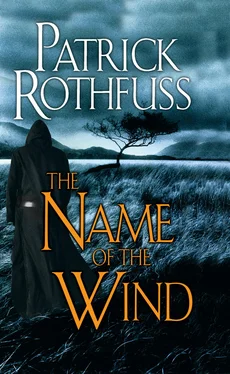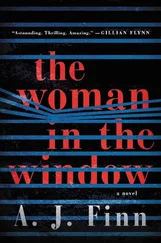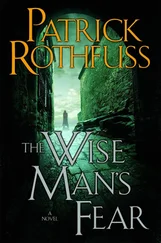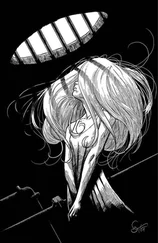“Keth-Selhan seems to suit him for a name,” I said, turning back to Kaerva. “Anything else I need to know?”
Kaerva seemed disconcerted. “He shies a bit on his right side.”
“A bit?”
“Just a bit. It stands to reason that he’s probably a bit prone to spooking on that side too, but I haven’t seen him do it.”
“How’s he trained? Close rein or trouper style?”
“Close.”
“Fine. You’ve got one minute left to make this deal. He’s a good animal, but I’m not paying twenty talents for him.” I spoke with certainty in my voice, but no hope in my heart. He was a gorgeous animal, and his coloring made him worth at least twenty talents. Still, I’d go through the motions and hope to squeeze the man down to nineteen. That at least would leave me money for food and lodging when I got to Trebon.
“Very well,” Kaerva said. “Sixteen.”
Only my years of stage training kept me from gaping openly at his sudden drop. “Fifteen,” I said, feigning irritation. “And that will include the saddle, tack, and a bag of oats.” I began pulling money out of my purse as if the deal was already finished.
Unbelievably, Kaerva nodded and called for one of the boys to bring a saddle and tack.
I counted the money into Kaerva’s hand as his assistant saddled the big black. The Ceald seemed uncomfortable meeting my eye.
If I didn’t know horses as well as I do, I would have thought I was being swindled. Maybe the horse was stolen, or the man was desperate for money.
Whatever the reason, I didn’t care. I was due a bit of good luck. Best of all, this meant that I might be able to resell the horse at a bit of a profit after I reached Trebon. Honestly, I would need to sell him as soon as I could manage, even if I lost money on the deal. Stabling, food, and grooming for a horse like this would cost me a penny a day. I couldn’t afford to keep him.
I strapped my travelsack into a saddlebag, checked the cinch and stirrups, then swung myself up onto Keth-Selhan’s back. He danced slightly to the right, eager to be off. That made two of us. I twitched the reins and we were on our way.
Most problems with horses have nothing to do with the horses themselves. They stem from the ignorance of the rider. Folk shoe their horses badly, saddle them improperly, feed them poorly, then complain that they were sold a half-lame, swayback, ill-tempered hack.
I knew horses. My parents had taught me to ride and care for them. While most of my experience had been with sturdier breeds, bred to pull rather than to race, I knew how to cover ground quickly when I needed to.
When they’re in a hurry, most folk push their mount too hard too soon. They head out at a dead gallop, then find themselves with a horse lame or half dead inside an hour. Pure idiocy. Only a twelve-color bastard treats a horse that way.
But to be entirely truthful, I would have ridden Keth-Selhan to death if it would have brought me to Trebon in a timely fashion. There are some times when I am willing to be a bastard. I would have killed a dozen horses if it would have helped me get more information about the Chandrian and why they had killed my parents.
But ultimately, there was no sense in thinking that way. A dead horse wouldn’t get me to Trebon. A live one would.
So I started Keth-Selhan at a nice walk to warm him up. He was eager to go faster, probably sensing my own impatience, and that would have been fine if I’d only needed to go a mile or three. But I needed him for at least fifty, maybe seventy, and that meant patience. I had to rein him back down to a walk twice before he resigned himself to it.
After a mile, I trotted him for a bit. His gait was smooth, even for a Khershaen, but a trot is jarring no matter what, and it pulled at the new stitches in my side. I urged him up to a canter after another mile or so. Only after we were three or four miles out of Imre and we came to a good, straight stretch of flat road did I nudge him up to a gallop.
Finally given the chance to run, he surged ahead. The sun had just finished burning away the morning dew, and farmers harvesting wheat and barley in the fields looked up as we thundered past. Keth-Selhan was fast; so fast that the wind tore at my cloak, stretching it behind me like a flag. Despite the fact that I knew I must cut quite the dramatic figure, I quickly grew tired of the drag on my neck, unfastened the cloak, then stuffed it into a saddlebag.
When we passed through a stand of trees, I brought Selhan back down to a trot. That way he got a little rest, and we didn’t run the risk of rounding a corner and barreling into a fallen tree or slow-moving cart. When we came out into pastureland and could see our way clear, I gave him his head again and we practically flew.
After an hour and a half of this, Selhan was sweating and breathing hard, but he was doing better than I was. My legs were a rubbery mess. I was fit enough, and young, but I hadn’t been in the saddle for years. Riding uses different muscles than walking, and riding at a gallop is just as hard as running unless you want to make your horse work twice as hard for every mile.
Suffice to say I welcomed the next stretch of trees. I hopped out of the saddle and walked to give both of us a well-deserved break. I cut one of my apples down the middle and gave him the larger half. I figured we’d come about thirty miles, and the sun wasn’t even fully at zenith.
“That’s the easy bit,” I told him, stroking his neck fondly. “Lord, but you are lovely. You’re not half blown yet, are you?”
We walked for about ten minutes, then we had the good luck to come across a little creek with a wooden bridge running across it. I let him drink for a long minute, then pulled him away before he took too much.
Then I mounted up and gaited him back up to a gallop by slow stages. My legs burned and ached as I leaned over his neck. The drumming of his hooves was like a counterpoint to the slow song of the wind, endlessly burning past my ears.
The first snag came about an hour later when we had to cross a wide stream. It wasn’t treacherous by any means, but I had to unsaddle him and carry everything across rather than risk it getting wet. I couldn’t ride him for hours wearing a wet harness.
On the other side of the river I dried him off with my blanket and re-saddled him. It took half an hour, which meant he had gone from being rested to being cold, so I had to warm him up gently, slow walk to trot to canter. That stream cost me an hour all told. I worried if there was another one the chill would get into Selhan’s muscles. If that happened, Tehlu himself wouldn’t be able to bring him up to a gallop again.
An hour later I passed through a small town, hardly more than a church and a tavern that happened to be next to each other. I stopped long enough to let Selhan drink a bit from a trough. I stretched my numb legs and looked up anxiously at the sun.
After that, the fields and farms grew fewer and farther between. The trees grew thicker and denser. The road narrowed and was not in good repair, rocky in places, washed out in others. It made for slower and slower going. But, truth be told, neither myself or Keth-Selhan had much more galloping left in us.
Eventually we came to another stream crossing the road. Not much more than a foot deep at the most. The water had a sharp, foul smell that let me know there was a tannery upstream, or a refinery. There wasn’t any bridge, and Keth-Selhan made his way slowly across, placing his hooves gingerly on the rocky bottom. I wondered idly if it felt good, like when you dandle your feet in the water after a long day’s walking.
The stream didn’t slow us down much, but over the next half hour we had to cross it three separate times as it wound back and forth across the road. It was an inconvenience more than anything, never much deeper than a foot and half. Each time we crossed it the acrid smell of the water was worse. Solvents and acids. If not a refinery, then at least a mine. I kept my hands on the reins, ready to pull Selhan’s head up if he tried to drink, but he was smarter than that.
Читать дальше











